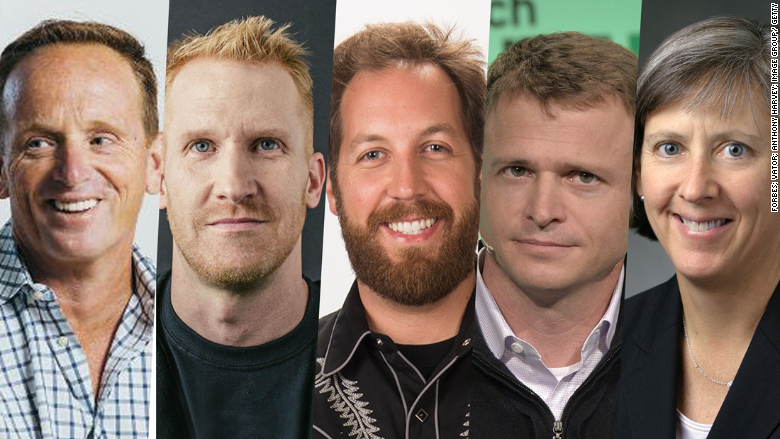
There are too few female investors and even fewer black ones. Period.
On Wednesday, Forbes unveiled its annual Midas List, a ranking of the top 100 tech investors. The list consists of just five women and zero black investors.
It's not shocking, given recent studies on the lack of diversity in venture capital.
Women make up just 8% of senior investment teams, while black and Hispanics make up just 1% each.
Forbes isn't to blame: It takes a data-driven approach to formulating its list.
Along with data partner TrueBridge Capital Partners, Forbes culled through "hundreds of funds" and partners, examining publicly available data from the past five years. It looked at startup exits (IPO or acquisition deals of $200 million or more) and portfolio companies that have raised $400 million or more (taking into account that, with private companies, investors have yet to see their returns).
The more holdings an investor has that fits the criteria -- and the earlier they got into a successful deal -- the higher they're ranked.
Related: Only 88 tech startups are run by black women
At the top of this year's list is Sequoia Capital's Jim Goetz. Goetz, who was also #1 last year, made the sole investment in Whatsapp (acquired by Facebook for $22 billion). He's also invested in anonymous social app Yik Yak and unicorn companies Carbon3D and GitHub.
Two other Sequoia investors also made it into the top 10. The firm has no female partners in the U.S. and has made headlines over the past few months. First, when Chairman Michael Moritz (who ranks #28) said the firm was "not prepared to lower our standards" to bring more women in as partners, and then when a longtime Sequoia partner was let go after a woman filed a disturbing lawsuit against him.
Goetz is followed by Steve Anderson of Baseline Ventures, the first investor in Instagram. Chris Sacca and Peter Fenton, both early Twitter investors, round out the top four.
Forbes' lead reporter on the Midas List, Alex Konrad, told CNNMoney that it is "hyper aware of diversity or lack thereof on the list."
"We take it very seriously," said Konrad, adding that because Forbes uses historical data, it's "hard to see quick changes" on a list of this kind.
A lack of diversity among decision makers also plays a big role in who gets funded.
Silicon Valley engineer: 'We're in a really precarious moment with race relations'
A recent study found that black female founders make up just .2% of all venture capital deals. Earlier this week, entrepreneur Matt Joseph spoke about his experience trying to raise money as a black man.
There are some wins this year, though. Mary Meeker, a general partner at Kleiner Perkins Caufield & Byers, came in at #5, making her the highest ranking woman on the list -- ever. Meeker backed firms like Facebook (FB), Airbnb, Spotify, Slack, Twitter (TWTR) and Instacart. She was ranked #15 last year.
Theresia Gouw, a former partner at Accel who has been absent from the Midas List for the past two years, made it in at #92 this year. Gouw recently cofounded Aspect Ventures with another female VC.
Out of the 100, there are 11 newcomers to the list, including 500 Startups cofounder Dave McClure, who has been a big proponent of investing in diverse founders and regions. McClure is an investor in unicorns like Credit Karma, Twilio and Lyft.
Diversity wasn't the only issue some had. Union Square Ventures' Fred Wilson, #29 on the list, criticized Forbes for singling out individuals.
"Attribution by partner is a deeply flawed process," he tweeted, stressing that venture capital is a team business: Deals are done -- and money is made -- together.

